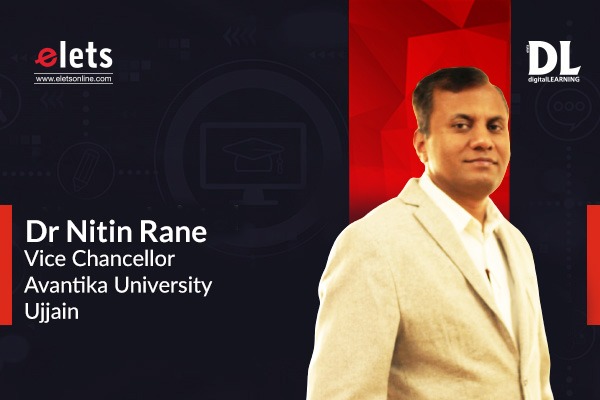
Dr Nitin Rane, Vice Chancellor, Avantika University, Ujjain shares with Digital Learning how regardless of the onset of many new programs in multiple fields, engineering education remains one of the most appealing options for students across the country.
What have been the various initiatives taken to encourage ‘Innovation in Education’ at your university?
The MIT group of Pune, with a legacy of 40+ years, is known for its innovative and unique approach to education. We have introduced a unique learning pedagogy of 100% Project-based Learning for engineering, design, and management students, which is a first of its kind. As far as innovation is concerned, much emphasis is laid upon the course curriculum in which the student would learn. We believe in imparting not only contemporary courses but such a curriculum that allows a student to think beyond contemporary. In the entire life cycle of our students, they inculcate such a skill set that makes them a billable resource for the industry.
Some other initiatives include:
The University launched a unique experiential learning module, Avantika Samagati. It is a conglomerate of international events and global travel voyages to create a culture of hand son experiential learning through travel. It is an opportunity to interact and work with academicians and practitioners of global repute.
Our emphasis in tune with experiential learning is more on industry connect, which includes expert sessions, workshops, and industry visits. These activities are conducted every week where the university calls in a diverse range of industry experts to share their knowledge and experience with the students.
How do you see the future of engineering education in the country?
Over the last hundreds of years, engineering has been the crux of our society’s development and progress. Advancement in technologies, engineering systems, and products has been at the heart of growth across multiple sectors. The determined sustainable development goals cannot be achieved without extensive updates in engineering ventures, and in many cases, with new technologies and attitudes.
Regardless of the onset of many new programs in multiple fields, engineering education remains one of the most appealing options for students across the country. Many students continue to enroll in engineering programs as net-zero transition, Industry 4.0, Data Science and technologies present many brilliant career opportunities.
The latest trend illustrates promising job prospects for engineering graduates and postgraduates, with organisations looking forward to hiring fresh talent who can help them fill the revenue or growth gap created by the pandemic.
How do you perceive the role of technology in driving academic change and facilitating outreach to students?
The learning environment is more charismatic than ever before, and as a result, new-age learners are learning in a way that’s very unconventional from how our educational system was initially designed. With the upgradation in technology and the upsurge in remote learning, classrooms are being overhauled and reevaluated in various ways to fit the changing needs of new-age digital learners.
If we talk about academic change, this is how technology is changing the dynamics.
- Taking learning beyond the classroom
- Recorded lectures making learning hassle-free
- Students and teachers connecting in more interactive multi way learning
- Technology enabling teachers to deliver personalised learning
- Classrooms are becoming more collaborative
We adopted Canvas as the Learning Management Platform to simplify teaching, elevate learning, and increase student engagement. The university is also one of the select few universities of Madhya Pradesh to be certified with E-LEAD Certification by QS I∙GAUGE India.
What are the novel programs that have been undertaken by your institution to grow and diversify, especially post the pandemic?
The University has initiated and undertaken multiple student centric programs over the course of last two years.
The University has collaborated with American, British, and European Universities in the domain of Design and Technology. The objective of these collaborations is to encourage and support cooperation between institutions. It also focuses on faculty and student exchange, joint educational activities, conferences, workshops, as well as virtual engagements.
As an initiative to make technology more integral to the learning environment, the university adopted Canvas as the Learning Management Platform to simplify teaching, elevate learning, and increase student engagement during the pandemic. The initiative continues to benefit students and faculty even after the pandemic.
How do you foresee the National Education Policy (NEP) transforming the higher education landscape in the country?
With preschools in India restarting post-pandemic in 2022, and the opportug projects, so that we can cater to communities in as many locations as possible.
In the context of higher education, NEP has brought monumental changes in governance and institutional reforms aimed at the setup of multi-disciplinary colleges, universities, and groups of higher education institutes. This will be done in tandem with the much-anticipated industrial revolution for skilled job creation and adding to new employment paths. The policy also lays emphasis on the National Research Foundation to fund excellent research and to actively implement research in universities and colleges.






















